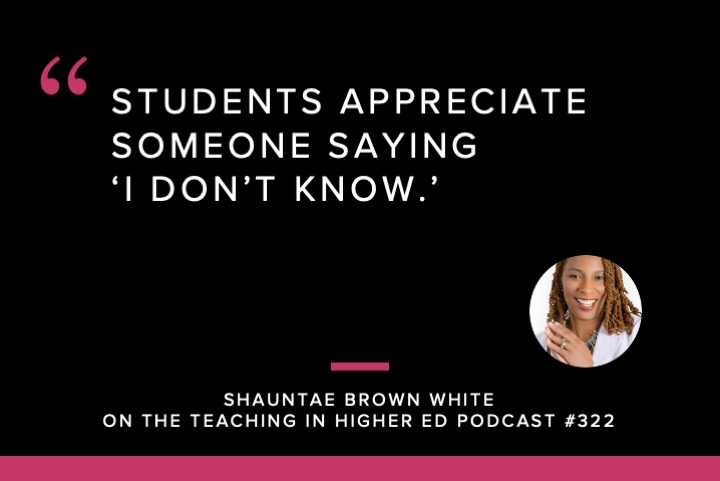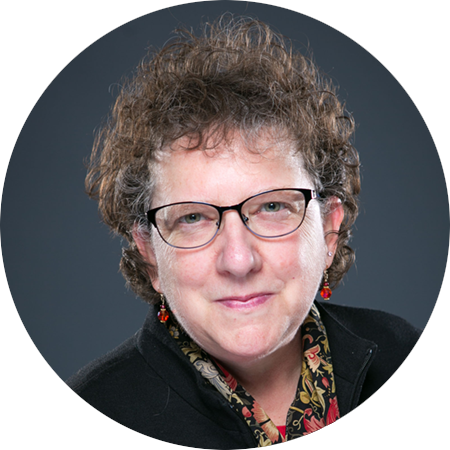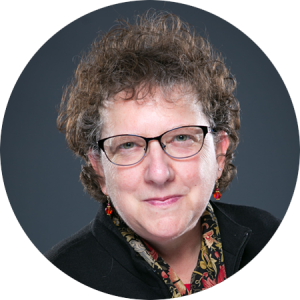



Higher education faced an abrupt shift to emergency remote instruction just months ago. This, coupled with other changing dynamics in a volatile world, left many institutions and faculty scrambling.
 Rebecca Karoff, associate vice chancellor for academic affairs at The University of Texas System (UT), and Susan Cates, CEO of ACUE, joined Sherri Hughes, assistant vice president of professional learning at the American Council on Education (ACE), for a conversation on how the UT System is making meaningful progress on student success goals in a volatile and stressful time for students, faculty, and institutions. Karoff and Cates offered insights into balancing immediate needs with future strategic planning.
Rebecca Karoff, associate vice chancellor for academic affairs at The University of Texas System (UT), and Susan Cates, CEO of ACUE, joined Sherri Hughes, assistant vice president of professional learning at the American Council on Education (ACE), for a conversation on how the UT System is making meaningful progress on student success goals in a volatile and stressful time for students, faculty, and institutions. Karoff and Cates offered insights into balancing immediate needs with future strategic planning.
UT’s three pillars have helped guide the system through the crisis.
In her role, Karoff oversees student success work throughout the UT System, one of the largest higher education systems in the country. The System’s diverse student demographics closely resemble that of the state of Texas, she said.
In an effort to meet the needs of a diverse student population, the System, in collaboration with UT institutions, has developed an equity-minded framework around student success. The framework focuses on three pillars: finances, advising, and belonging. These pillars are aligned with the institutions’ values and the needs of students they serve—and have shaped their approaches to coping with the challenges that have emerged over the past few months.
Right now, Karoff said, the System’s primary focus is ensuring students have everything they need, including financial support and advising. She notes that, amidst the fear and anxiety about the coming semester, there has been “incredible responsiveness,” with presidents, provosts, and other institutional leaders calling students to make sure they have places to live, and providing hotspots and laptops.
“That kind of responsiveness is absolutely stunning,” Karoff said.
Faculty need to be represented in system-level conversations.
“As faculty made this move to emergency remote learning, and other parts of the student experience fell away, the faculty relationship with students was that much more central—faculty became the university for students,” Cates noted.
So, how has the UT System sought to engage faculty in the student success mission at the system level?
Karoff wondered the same thing herself when she joined the office several years ago and observed that faculty weren’t well-represented in higher-level discussions around student success. During the System’s 2018 Summit, she focused on the role of faculty in student success. The System’s Faculty Advisory Council and Student Advisory Council both played roles in bringing about this kind of system-wide engagement, as did provosts.
The Faculty Advisory Council, Karoff said, recommended the ACUE program, and partnered with her on a systemwide pilot.
“It’s been a really nice, organic evolution of increased interest in ACUE,” Karoff said. She had several of the most seasoned and awarded faculty from the System’s Academy of Distinguished Teachers participate in the pilot, commenting after that they wished they could have taken advantage of the program decades earlier but still learned something. Additionally, both UT Arlington and UT El Paso conducted their own ACUE cohorts. UT System Chancellor J.B. Milliken became one of ACUE’s most ardent proponents as well, helping secure funding from the UT System Board of Regents to fund cohorts at each of the System’s eight academic universities.
“There’s such a hunger right now for professional development and collective problem-solving across disciplines,” Karoff said.
Quality instruction goes hand-in-hand with equity.
The pandemic isn’t the only roadblock in higher education. Some challenges are exacerbated, while others are deeply entrenched and highlighted by the current landscape.
Karoff stressed the importance of embedding efficacy research into the impact of initiatives, especially as new equity gaps emerge. The UT System is also bringing together faculty to examine how to best support students, especially in light of the deep problems we’re facing as a society, including poverty and racism.
“We now have an opportunity to think about how to address inequities and systemic racism,” Karoff said. “We’re trying to be more intentional about this work. This is happening in our classrooms as well—faculty are eager to have difficult conversations but also anxious that they’re not as well prepared as they could be to lead them.”
Karoff stresses that this is difficult work. Cates, too, summarizes the efforts ACUE is making to conduct research on the impact of their work.
”We believe passionately that evidence-based teaching is inclusive teaching at its core,” Cates remarks. She cites studies across numerous partner institutions, including Texas Woman’s University, Cal State LA and Broward College, all of which confirm that students are more engaged, learn more, and complete courses in greater numbers—more equitably with their peers—when taught by ACUE-credentialed faculty. Cates also noted that ACUE recently released an Inclusive Teaching Practices Toolkit, a set of recommendations that faculty can immediately put to use to create more inclusive learning environments.
“We have the opportunity to make change,” Karoff added. “This is a national moment of reckoning. Systems and institutions have a responsibility to address systemic inequities and institutionalized racism. I know the discomfort people are feeling. We need to utilize it to make us do the hard work to remove barriers, especially for Black, Indigenous and students of color.”
Systems must provide institutions and faculty with resources to enhance their teaching.
Karoff also stressed the importance of equipping faculty and leaders with resources to address student success. Those resources include centers for teaching and learning, along with, of course, programs like ACUE.
First, though, deans and other faculty and staff must examine the data and see who’s being left behind and why they aren’t being served.
These resources can not only fuel improved instruction, but they can also serve other purposes.
“The time is really ripe for doing curriculum innovation,” Karoff said, suggesting institutions and systems take a more interdisciplinary, project-based approach to teaching. Additionally, she added, “We need to be more focused on preparing students for the future of work, a future that has to be engaged in solving global problems including pandemics, poverty, racism and climate change. All of these global problems are right here in Texas”
“Whether you’re teaching philosophy, math, or engineering, how do you support students as they prepare for their career as it relates to your discipline?” Cates agrees. ACUE, too, has worked with partners to think about the faculty role in career readiness, offering a course concentration.
Amid the many immediate disruptions, Karoff believes it’s essential to keep these issues front and center, while planning for the post-COVID landscape.
Watch the full webinar and join the conversation by creating a free account on ACE Engage®.
This series offers an informal opportunity to learn from a range of leaders and experts on timely topics relevant to students’ success. Conversations on Student Success are produced in collaboration with the Association of College and University Educators.
“Back to Class” means something different during a global pandemic. New face masks, hand sanitizer, laptops and headphones fill online shopping carts, and thousands of educators nationwide are welcoming their students through a screen instead of in a classroom.
Nevertheless, faculty are as dedicated as ever to the success of their students. In a series of “Back to Class” posts, I’m sharing some resources that faculty can use with their students—whether in a classroom or a virtual learning environment—to support deeper engagement and learning.
 Dr. Carol Dweck and her colleagues are credited with studying the impact of having a “growth mindset.” In short, students who are able to view setbacks and failures as opportunities for growth actually develop their brains to become smarter and more resilient, leading to higher levels of achievement. The alternative is known as having a “fixed mindset.”
Dr. Carol Dweck and her colleagues are credited with studying the impact of having a “growth mindset.” In short, students who are able to view setbacks and failures as opportunities for growth actually develop their brains to become smarter and more resilient, leading to higher levels of achievement. The alternative is known as having a “fixed mindset.”
To talk with your students about the importance of a growth mindset, download this ACUE Student Resource: Growth Mindset.
The video below features ACUE faculty expert José Antonio Bowen, PhD, discussing the positive impact of having a growth mindset. Have a great class!
—Laurie Pendleton, Executive Director of Curriculum and Assessment, ACUE